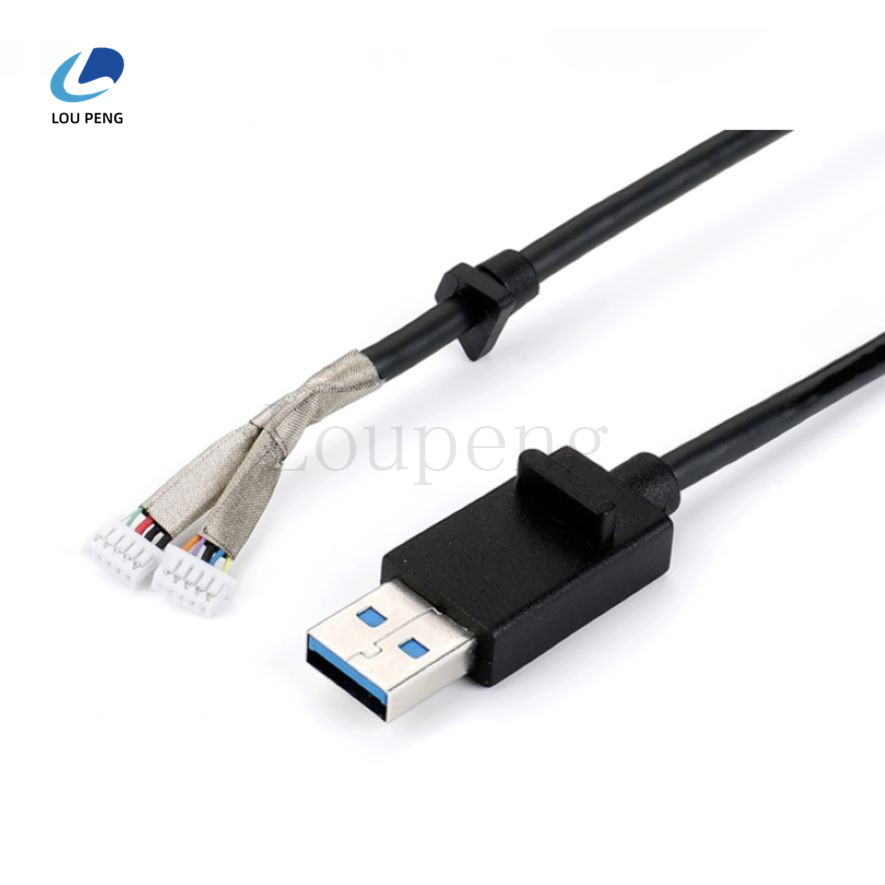Explain the impact of the quality of USB cable materials!
With the rapid development of modern technology, USB cables are an important bridge for data transmission and power transmission between electronic devices. The choice of materials has a crucial impact on the performance of the cables. In this article, Loupeng Electronics will deeply explore the impact of the quality of USB cable materials to help consumers better choose USB cables that suit their needs!

1. The influence of conductor material:
The conductor material of the USB cable directly determines its conductivity and signal transmission efficiency. Common conductor materials include tinned copper, aluminum-magnesium wire, enameled wire, copper wire, copper foil wire, bare copper, silver-plated copper, copper-clad steel, copper-clad iron, etc. Among them, high-quality copper core wires such as tinned copper, copper wire and bare copper have good conductivity and fast signal transmission speed, and are ideal for making high-quality USB cables. Some low-quality wires are made of inferior copper or aluminum, or even copper-clad steel, copper-clad iron, etc. These materials not only have poor conductivity, but may also cause problems such as reduced transmission speed and signal distortion.
2. The influence of shell material:
The shell material of the USB cable not only affects the appearance and feel of the cable, but also has an important impact on its durability, tensile strength and electromagnetic shielding effect. Common USB data cable shell materials on the market include PVC, TPE and braided nylon.
PVC material: PVC material is relatively cheap, but it is hard and has poor resilience, which can easily cause breakage and peeling. In addition, PVC materials may release harmful substances during use, which will have a certain impact on the environment and human health. Therefore, although PVC materials have advantages in cost, they have obvious deficiencies in environmental protection and durability.
TPE material: TPE material is a thermoplastic elastomer material with high elasticity, high strength and high resilience of rubber, and it also has the characteristics of injection molding. TPE material data cables are soft to the touch, have excellent weather resistance, fatigue resistance and temperature resistance, and are safe, non-toxic and odorless. However, TPE material data cables also have disadvantages such as poor dirt resistance and easy skin bursting due to improper use.
Braided nylon material: Braided nylon material data cables are one of the mainstream non-original data cables on the market. Nylon material has the characteristics of flame retardancy, high strength, wear resistance and electrical insulation, which makes braided nylon data cables extremely durable, not easy to deform, and have good external tensile strength. In addition, braided nylon data cables also increase the beauty and feel of the data cables, and are not easy to tangle or crease. However, the dimensional stability of braided nylon data cables is not enough, and the price is relatively high.
3. Material selection suggestions:
When choosing a USB cable, consumers should choose the right material according to their actual needs and budget. For users who pursue high-speed data transmission and durability, it is recommended to choose a data cable with a conductor material of high-quality copper core (such as tinned copper, copper wire, etc.) and a shell material of braided nylon. This type of data cable not only has fast transmission speed and stable signal, but also has good durability and tensile resistance. For users with a limited budget, you can choose a data cable with a conductor material of ordinary copper core and a shell material of TPE. Although the performance is slightly inferior, it can also meet basic data transmission needs.
Summary: The quality of the material of the USB cable directly affects its transmission speed, durability, tensile resistance, and electromagnetic shielding effect. Therefore, when choosing a USB cable, consumers should fully consider their actual needs and budget and choose the right conductor and shell material. At the same time, you should also pay attention to choosing products from regular brands and manufacturers to ensure the quality and safety of the products.


